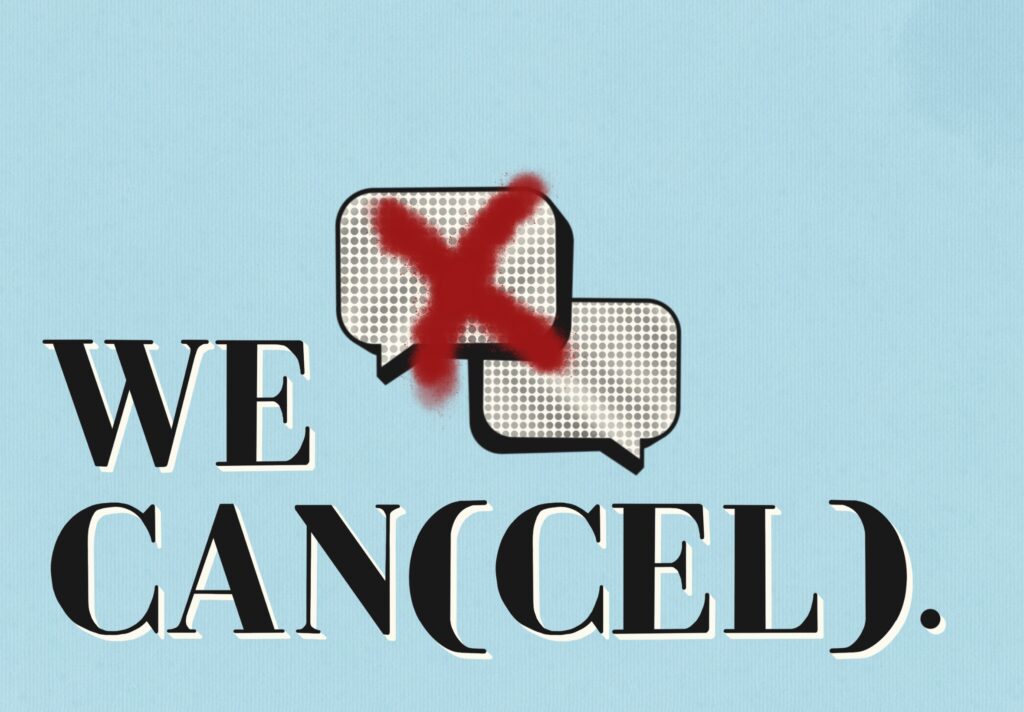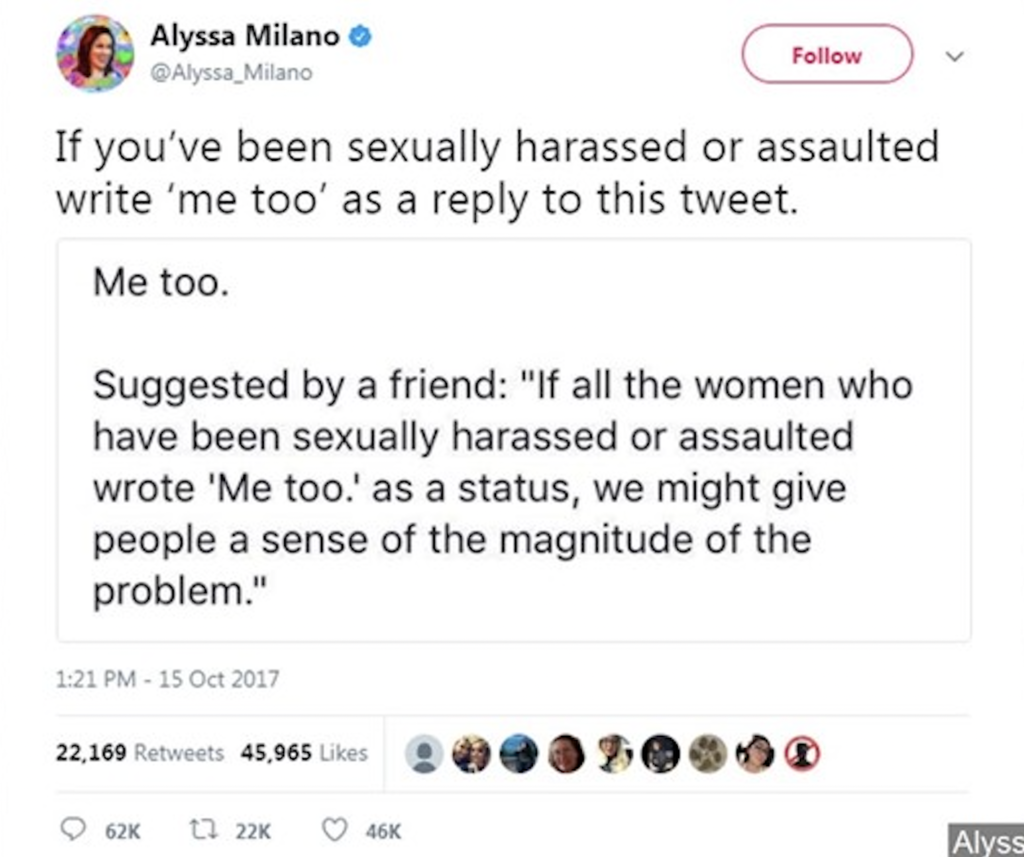
“Cancel culture” is the public shunning of someone when they’ve said or done something people view as problematic (Wong 2022). So, how did it come about?
People try to separate the “good” and the “bad”. They do this by punishing those who act in said “bad” ways, in order to reduce the chance of those acts happening in the future (Wong 2022). This idea has evolved over time, and emerged into the 21st century as “cancel culture” through the abundance of social media and the fast-paced environment it creates.
Pushing the Boundaries of Accountability
Whether it be online or through the gruesome beheadings of the past, people form rules and beliefs for how society should properly function. And today, groups of people find power through the exclusion of people and ideas that they believe have outdated views (Pierson-Brown 2022).
Cancel culture can be a force for social change, equipped to bring about justice for groups (or victims) that struggle to obtain legal or public accountability (Norris 2020). A “power in numbers” approach, it involves the organization and mobilization in support of a minority voice against those that wield institutional power, creating space for them to feel seen, heard, and understood (Pierson-Brown 2022). Paired with apps like Instagram and Twitter among other online platforms, cancel culture encourages collective action and presses for accountability (Pierson-Brown 2022).
The #MeToo Movement
Through movements such as #MeToo, victims were able to rise up against sexual predators well-known in the entertainment industry, who had engaged in rape, sexual harassment, and pedophilia (Norris 2020).
“MeToo” was coined by activist Tarana Burke. Over the years, Burke used MeToo to show survivors of sexual assault that they weren’t alone, as a survivor herself (Alexander 2024). Shortly after sexual assault allegations against film producer Harvey Weinstein were released in 2017, Actress Alyssa Milano posted a tweet that amplified what Burke had started.

Within the first 24 hours, #MeToo was used 12 million times. People found the courage to share their experiences and found strength and support from each other in return (Mendes, Ringrose, and Keller 2018). With the help of social media, they were able to bring attention to a very real and overlooked issue. In this way, cancel culture helped unite a historically powerless group, whose voices were often ignored, wield power against others that take that power for granted (Pierson-Brown 2022).
The Problem with Thomas L. Keon’s Speech
More recently, Purdue University Northwest’s chancellor Thomas L. Keon was held accountable for his controversial statements. In December of 2022, shortly before Keon’s speech at a commencement ceremony, radio host James Dedelow had addressed the graduates, making a remark about using a “made-up language” with family and on air.
Keon then approached the podium and said, “Well, all I can say is…”, which he followed up with an assortment of his own made-up words. He then says, “That’s sort of my Asian version of his,” which received a few laughs from the audience (Heyward 2022).
As the video spread online, so did disapproval. Government officials, influencers, and the Asian-American community criticized Keon all over social media. Keon then issued an apology for his actions, claiming that he would direct a team focused on inclusion, diversity, and equity to address similar issues and would reflect on his mistakes (Keon 2022).
The university’s Board of Trustees deemed Keon’s words as “extremely offensive and insensitive” and “unbecoming of his role as chancellor,” and ultimately formally reprimanded Keon (Berghoff 2022). Criticism of Keon’s professional behavior pressured him into accountability, and the board listened and took action.
The organization of a louder voice of discontent was able to persuade the institution through their use of collective action, and their decision to “cancel” the individual as a group gave them power to do so (Pierson-Brown). It spread the message that Keon’s actions (or inactions) offended a whole group of people’s values and beliefs (Patrice).
Does Cancel Culture Inspire Social Change?
Chancellor Thomas L. Keon returned to serve the rest of his term despite the executive committee demanding that Keon step down from his position. He’s served since 2016, and will continue to do so until June 30, 2024. Afterwards, Keon will be put in a faculty position instead (Yam 2023).
He didn’t receive as severe a punishment as many may have wanted, and it wasn’t immediately effective. His behavior has sparked questions on his qualification to work with students and other faculty of Asian descent without prejudice, undermining the effort for inclusivity of Asian and other minority communities (Yam 2022).
One of the problems with this is that the “canceling” of someone “operates on the assumption that an individual should be held independently responsible to change” (Pearson 2021). Although successful in enforcing a degree of punishment on such individuals, the larger issue of exclusion and a lack of sensitivity were not addressed. This could be interpreted as a situation where cancel culture “treated the social symptom, not the root cause” (Pearson 2021).
But some change was made. Keon’s case proves that certain ideas or behavior that may have been tolerated in the past are no longer acceptable (Bagus et al. 2022). People outwardly voiced their concerns on his racist behavior, using the essence of canceling to amplify their concerns, enough to influence the actions of bigger institutions. Though cancel culture may seem superficial at times, it can at other times dig at something deeper and reveal the need for important social change (Pierson-Brown).
References
Afshar, Paradise and Zoe Sottile. 2023. “Trustees reprimand Purdue University Northwest chancellor for racist remarks, as faculty call for his resignation”. CNN. Retrieved April 12, 2024. (https://www.cnn.com/2022/12/23/us/purdue-university-chancellor-racist-remarks-reaj/index.html)
Alexander, Kerry Lee. 2020. “Tarana Burke.” National Women’s History Museum. Retrieved May 1, 2024. (https://www.womenshistory.org/education-resources/biographies/tarana-burke)
Bagus, Philipp, Frank Daumann, and Florian Follert. 2022. “Cancel culture, safe spaces, and academic freedom: A private property rights perspective”. Social Science Research Network.
Berghoff, Mike. 2022. “Statement from Trustee Chair Mike Berghoff, re: PNW Chancellor remarks.” Purdue University News. Retrieved April 14, 2024. (https://www.purdue.edu/newsroom/releases/2022/Q4/statement-from-trustee-chair-mike-berghoff,-re-pnw-chancellor-remarks.html).
Heyward, Giulia. 2022. “A university chancellor apologized after mocking Asian languages in his speech.” NPR. Retrieved April 12, 2024. (https://www.npr.org/2022/12/16/1143222095/purdue-northwest-chancellor-mocks-asian-language)
Keon, Thomas L. 2022. “An Apology from Purdue University Northwest Chancellor Thomas L. Keon.” Purdue University Northwest. Retrieved April 14, 2024. (https://www.pnw.edu/an-apology-from-purdue-university-northwest-chancellor-thomas-l-keon/)
Mendes, Kaitlynn, Jessica Ringrose, and Jessalynn Keller. 2018. “#MeToo and the promise and pitfalls of challenging rape culture through digital feminist activism.” European Journal of Women Studies 25(2):236–246
Norris, Pippa. 2020. “Closed Minds? Is a ‘Cancel Culture’ Stifling Academic Freedom and Intellectual Debate in Political Science?” Social Science Research Network.
Pearson, Diana Heather. 2021. “Accountability, Exile and Social Media: An Analysis of Contemporary Online Public Shaming Practices and ‘Cancel Culture'”. Education & Research Archive.
Pierson-Brown, Tomar. 2022-2023. “Calls for Change: Seeing Cancel Culture From a Multi-Level Perspective”. Cuaderno: Centro de Estudios en Diseño y Comunicación 157:87-102.
Wong, Ryan SC. 2022. “Revisiting Cancel Culture.” Contexts 21(4):69–73.
Yam, Kimmy. 2023. “Purdue Northwest chancellor who mocked Asian languages will serve entire term.” NBC News. Retrieved April 11, 2024. (https://www.nbcnews.com/news/asian-america/purdue-northwest-chancellor-mocked-asian-languages-will-serve-entire-t-rcna81414)Yang, Maya. 2022. “Purdue Northwest chancellor sorry for mocking Asian language in speech.” The Guardian. Retrieved April 12, 2024. (https://www.theguardian.com/education/2022/dec/15/purdue-northwest-chancellor-apology-mocking-asian-language)